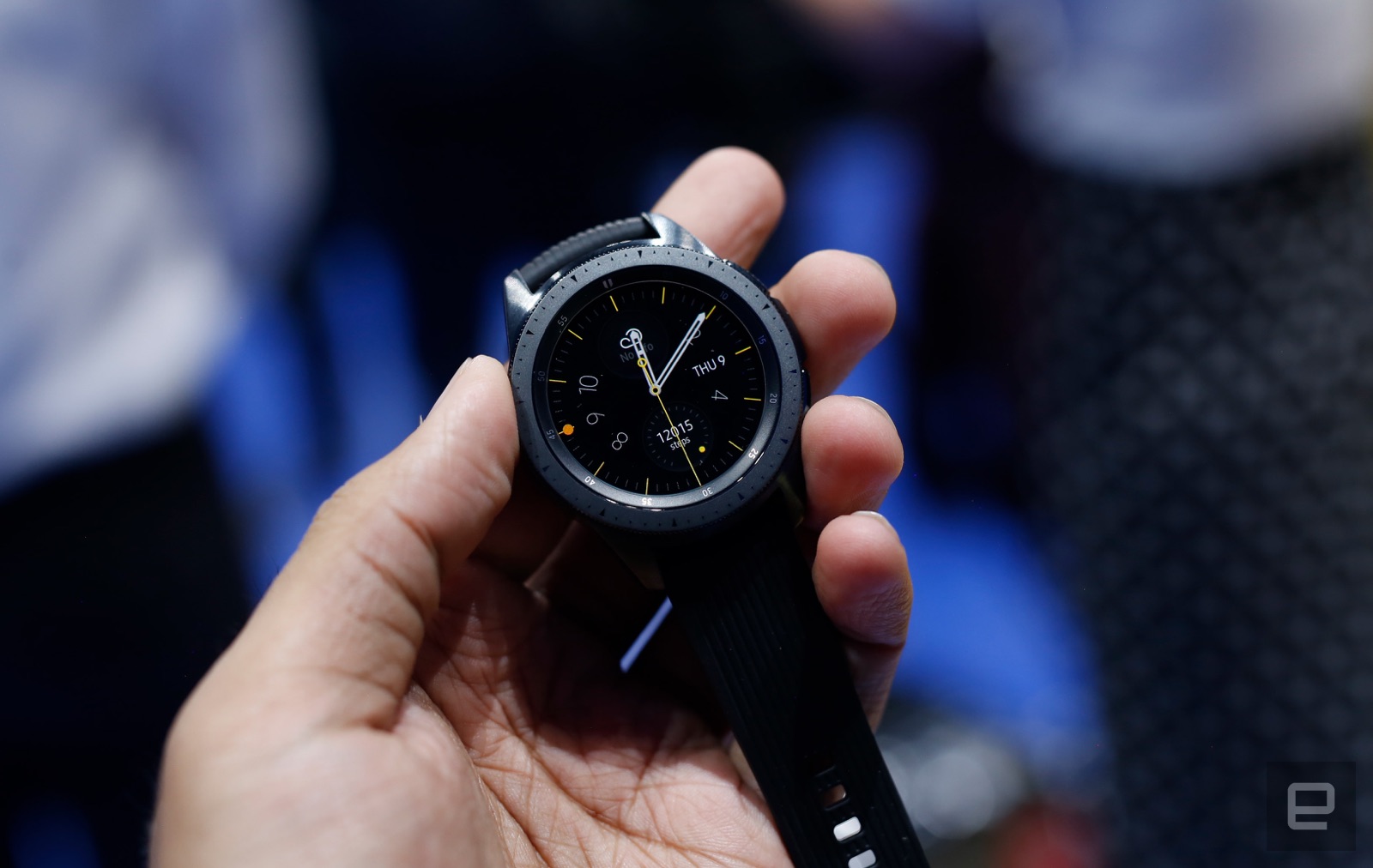 We knew Samsung's Galaxy Note 9 was coming, but the new Galaxy Watch was a bit more of a surprise. (Well, as much a surprise as a device Samsung leaked on its own website can be.) The crowds have finally started to dissipate here at Samsung Unpacked, so we snagged a few Galaxy Watches to try on, and there's immediately plenty to like about the wearable. It's light, almost surprisingly so. It runs with a new, dual-core Samsung Exynos 9110 chipset, not the same pokey Snapdragon Wear 2100 that's been in nearly every Wear OS watch for two years. Oh, and it looks pretty nice too. I hear that's important to some people. With all that said, I can't really call the Galaxy Watch surprising. The versions with darker trim are basically lighter versions of the hyper-masculine Gear S3 Frontier -- that reduction in weight is largely because of the Watch's plastic back and the removal of Samsung's MST payments system. (Sorry, you'll only be able to use NFC for mobile payments.) The rose gold model, meanwhile, is nice and subtle with a textured, light coral band. I don't know that I could pull it off, but Cherlynn is already pretty fond of the thing. There's 42mm and a 46mm version of the Galaxy Watch, and assuming it doesn't look too awkward on your wrist, you're almost certainly better off splurging on the larger model. That's because Galaxy Watch's biggest selling point might be its battery life: Samsung says the smaller 42mm model only has a 270mAH battery, while the slightly larger 46mm Watch can hit the six-day mark before its 472mAh cell needs recharge. Solid battery life from a Samsung watch isn't much of a shock -- the Gear Sport routinely hit four days of use in our review -- but we'll have to wait a few more weeks to test the company's claims for ourselves. While Samsung didn't have much to say about when it would see the light of day, it might be worth going for the LTE-friendly Galaxy Watch as well. All versions of the Watch come with 4GB of internal storage, but the LTE version will ship with 1.5GB of RAM -- that's twice the amount you'll get in the standard Bluetooth model. Unfortunately, some of the Watch's most notable features don't seem to work on the units we've strapped on. Covering a big event like this is often an exercise in stress management, so it would've been nice to use the Galaxy Watch's included Stress applet to help us manage the flood of emotions that come when testing new hardware. And since Samsung hasn't seen fit to fill Barclays Center with treadmills, we obviously couldn't take the Watch's exercise recognition features for a test. That said, Samsung's wearables have historically been between smartwatches than activity trackers, so we're very curious to see if the company has made any meaningful progress on this front. After watching the company try to craft the perfect wearable for a few years, it seems clear the Galaxy Watch isn't a game-changer. It represents another year of steady progress
via Engadget RSS Feed https://ift.tt/2AX9pUZ |
Comments
Post a Comment